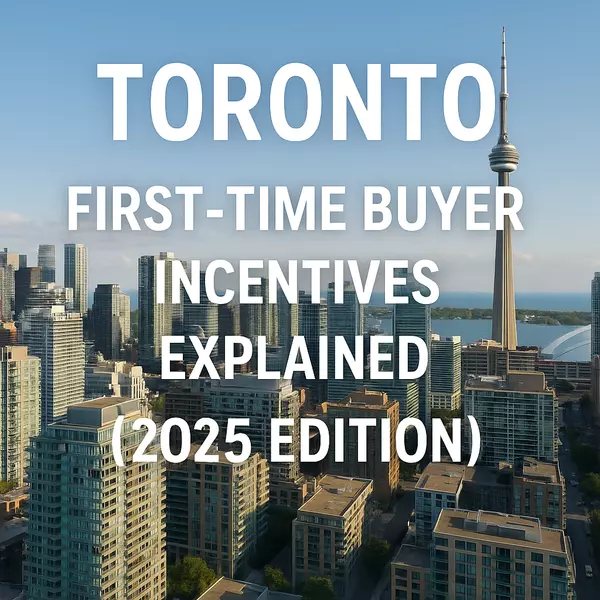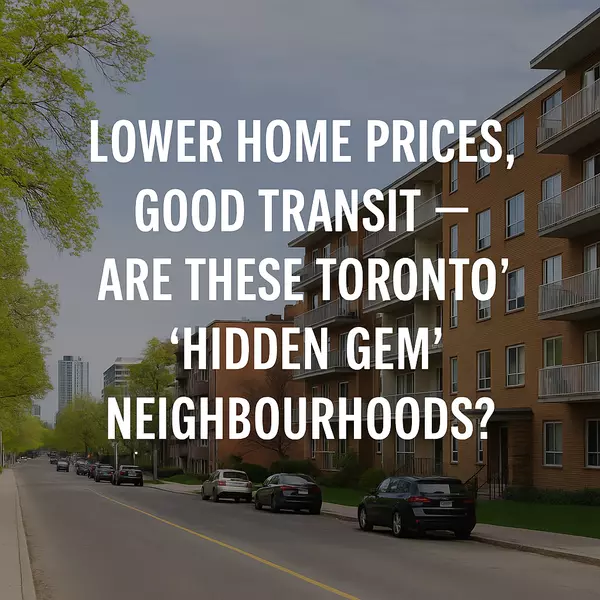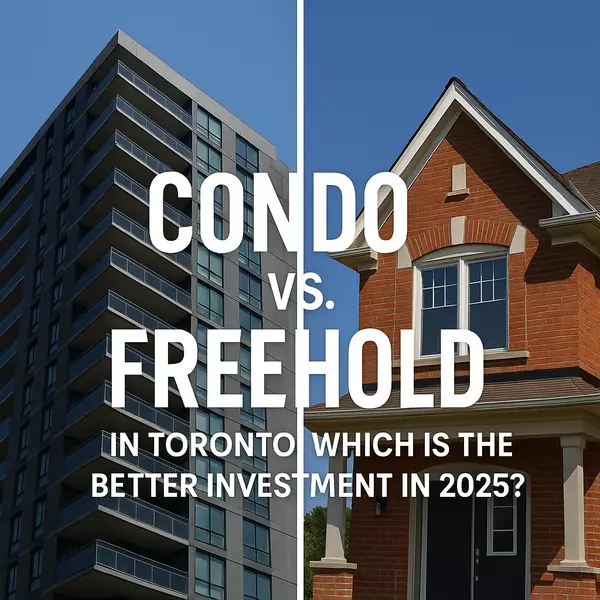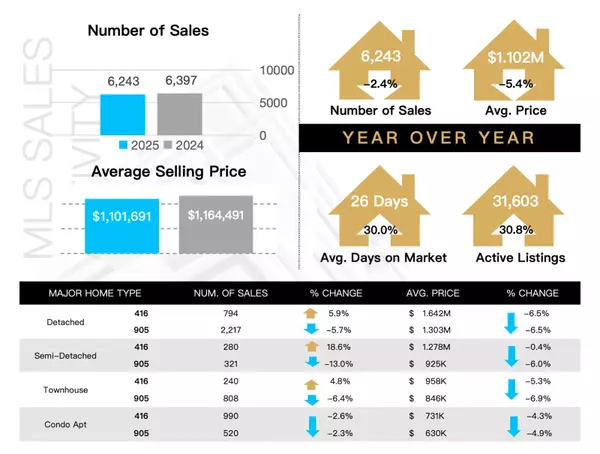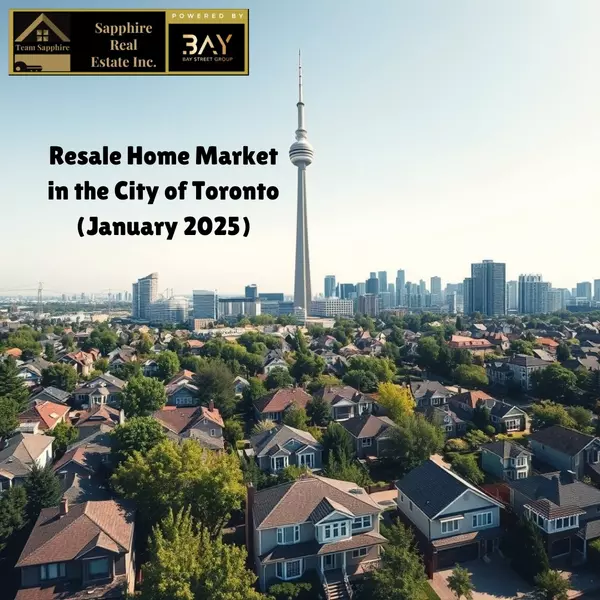"Pricing Your GTA Home Right: Strategies for a Quick Sale"
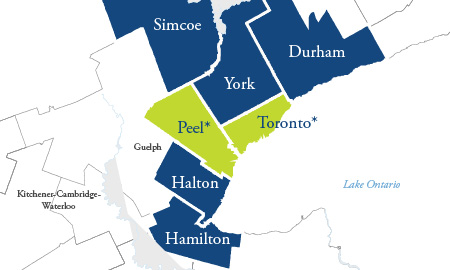
Introduction:
In the dynamic real estate market of the Greater Toronto Area (GTA), pricing your home correctly is crucial for a quick and successful sale. The right price can attract potential buyers, generate competitive offers, and ensure your property doesn't linger on the market. This guide will walk you through effective strategies to price your GTA home for a swift and profitable sale.
- Understand the Current GTA Real Estate Market
Before setting a price, it's essential to grasp the current state of the GTA real estate market:
a) Market Trends: Is it a buyer's market, seller's market, or balanced market? b) Seasonality: Consider how the time of year affects buying patterns in the GTA. c) Economic Factors: Be aware of interest rates, employment rates, and other economic indicators that influence the real estate market. d) Local Developments: New infrastructure projects or upcoming neighborhood changes can impact property values.
- Conduct a Comparative Market Analysis (CMA)
A CMA is a crucial tool in determining the right price for your home:
a) Recent Sales: Look at similar properties sold in your area within the last 3-6 months. b) Active Listings: Compare your home to others currently on the market. c) Pending Sales: These can indicate where the market is heading. d) Expired Listings: Understanding why these properties didn't sell can help you avoid similar pitfalls.
- Consider Your Home's Unique Features
Every property has distinctive characteristics that can affect its value:
a) Location: Proximity to amenities, schools, public transit, and major highways. b) Size and Layout: Square footage, number of bedrooms and bathrooms, and floor plan. c) Condition: Overall maintenance, recent renovations, and needed repairs. d) Special Features: Things like a finished basement, swimming pool, or energy-efficient upgrades.
- Factor in Your Timing and Motivation
Your personal circumstances can influence your pricing strategy:
a) Urgency: If you need to sell quickly, you might price more aggressively. b) Market Timing: Selling during peak seasons (spring and fall in the GTA) might allow for higher pricing. c) Financial Situation: Consider your mortgage balance and desired net proceeds.
- Utilize Online Valuation Tools (with Caution)
Online tools can provide a starting point, but shouldn't be relied on exclusively:
a) Benefits: Quick, free estimates based on available data. b) Limitations: May not account for recent renovations or unique features. c) Popular Tools: Zolo, HouseSigma, and Properly offer estimates for GTA properties.
- Consult with a Local Real Estate Agent
An experienced GTA agent can provide invaluable insights:
a) Market Knowledge: In-depth understanding of local trends and buyer preferences. b) Pricing Expertise: Skills in accurately valuing properties based on multiple factors. c) Negotiation Experience: Ability to advise on pricing strategies that leave room for negotiation.
- Consider Different Pricing Strategies
Various approaches can be effective depending on your goals and market conditions:
a) Pricing at Market Value: Setting the price in line with comparable sales can attract serious buyers. b) Slightly Below Market: This can generate more interest and potentially lead to multiple offers. c) Above Market with Room to Negotiate: This strategy works best in a strong seller's market. d) Rounded vs. Precise Numbers: Psychology plays a role; $499,000 might attract more attention than $500,000.
- Avoid Common Pricing Pitfalls
Be wary of these common mistakes:
a) Overpricing: This can lead to longer market times and eventual price reductions. b) Emotional Pricing: Don't let personal attachments inflate your home's value. c) Ignoring the Competition: Always be aware of what else is available to buyers. d) Failing to Adjust: Be prepared to reassess your price if market conditions change.
- Prepare Your Home for Sale
The condition of your home can justify a higher price:
a) Declutter and Deep Clean: A tidy, spotless home shows better and can command a higher price. b) Make Minor Repairs: Fix leaky faucets, squeaky doors, and other small issues. c) Enhance Curb Appeal: First impressions matter; ensure your home's exterior is well-maintained. d) Consider Home Staging: Professional staging can help buyers envision themselves in the space.
- Be Ready to Explain Your Price
Prepare to justify your asking price to potential buyers:
a) Recent Upgrades: Highlight any renovations or improvements you've made. b) Neighborhood Benefits: Emphasize local amenities, schools, and community features. c) Energy Efficiency: Point out any features that can save buyers money in the long run. d) Unique Selling Points: Showcase what makes your property stand out in the GTA market.
- Stay Flexible and Open to Feedback
The market will ultimately determine your home's value:
a) Listen to Buyer Feedback: If multiple buyers raise the same concerns, consider adjusting your price. b) Monitor Market Activity: Keep an eye on new listings and sales in your area. c) Be Prepared to Negotiate: Having a range in mind can help you respond to offers effectively.
- Consider Price Adjustments Strategically
If your home isn't selling, reassess your strategy:
a) Timing: The first 2-3 weeks are crucial. If you haven't received offers, consider a price adjustment. b) Amount: Even a small reduction (1-3%) can reignite interest. c) Communication: Ensure your agent informs all interested parties of any price changes.
- GTA Regional Considerations
The GTA's diverse regions may require different pricing strategies:
a) Toronto Core: High demand often allows for premium pricing, especially for condos and townhomes. b) York Region: Family-friendly areas like Richmond Hill and Markham can command higher prices for detached homes. c) Peel Region: Mississauga and Brampton offer a mix of urban and suburban properties, each with unique pricing considerations. d) Durham Region: More affordable options in Oshawa and Whitby might require competitive pricing to stand out. e) Halton Region: Luxury properties in Oakville may require a different approach compared to more modest homes in Milton.
- Leverage Technology and Marketing
The right marketing can justify a higher price:
a) High-Quality Photos and Virtual Tours: These can attract more buyers and potentially higher offers. b) Social Media Marketing: Targeted ads can reach potential buyers who might pay a premium for your property. c) Online Listings: Ensure your home is listed on popular real estate websites with accurate, compelling descriptions.
Conclusion:
Pricing your GTA home right is both an art and a science. It requires a deep understanding of the local market, a realistic assessment of your property's value, and a strategic approach to attracting buyers. By following these strategies and working with experienced professionals, you can position your home for a quick sale at a price that meets your goals.
Remember, the GTA real estate market can change rapidly. Stay informed, be flexible, and trust the process. With the right price and proper preparation, your GTA home can stand out in this competitive market, attracting serious buyers and potentially leading to a swift, successful sale.
Categories
Recent Posts

